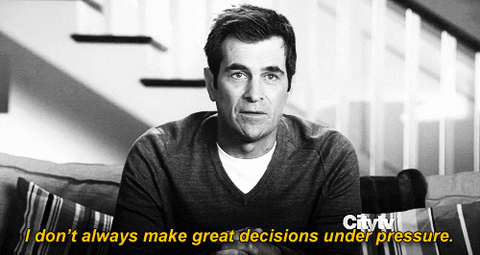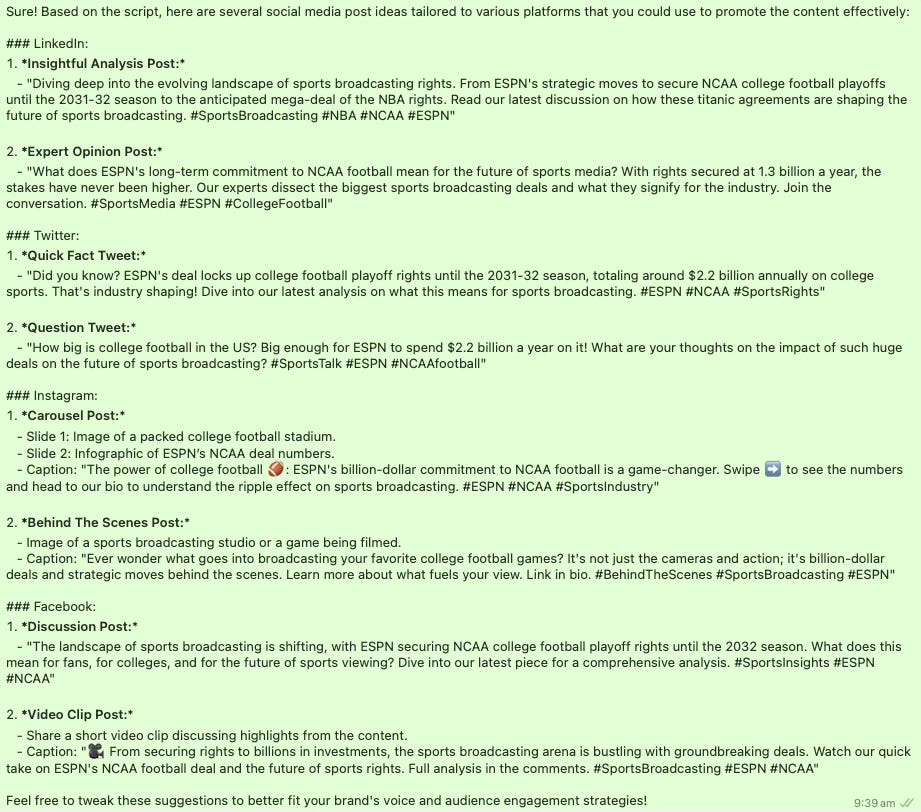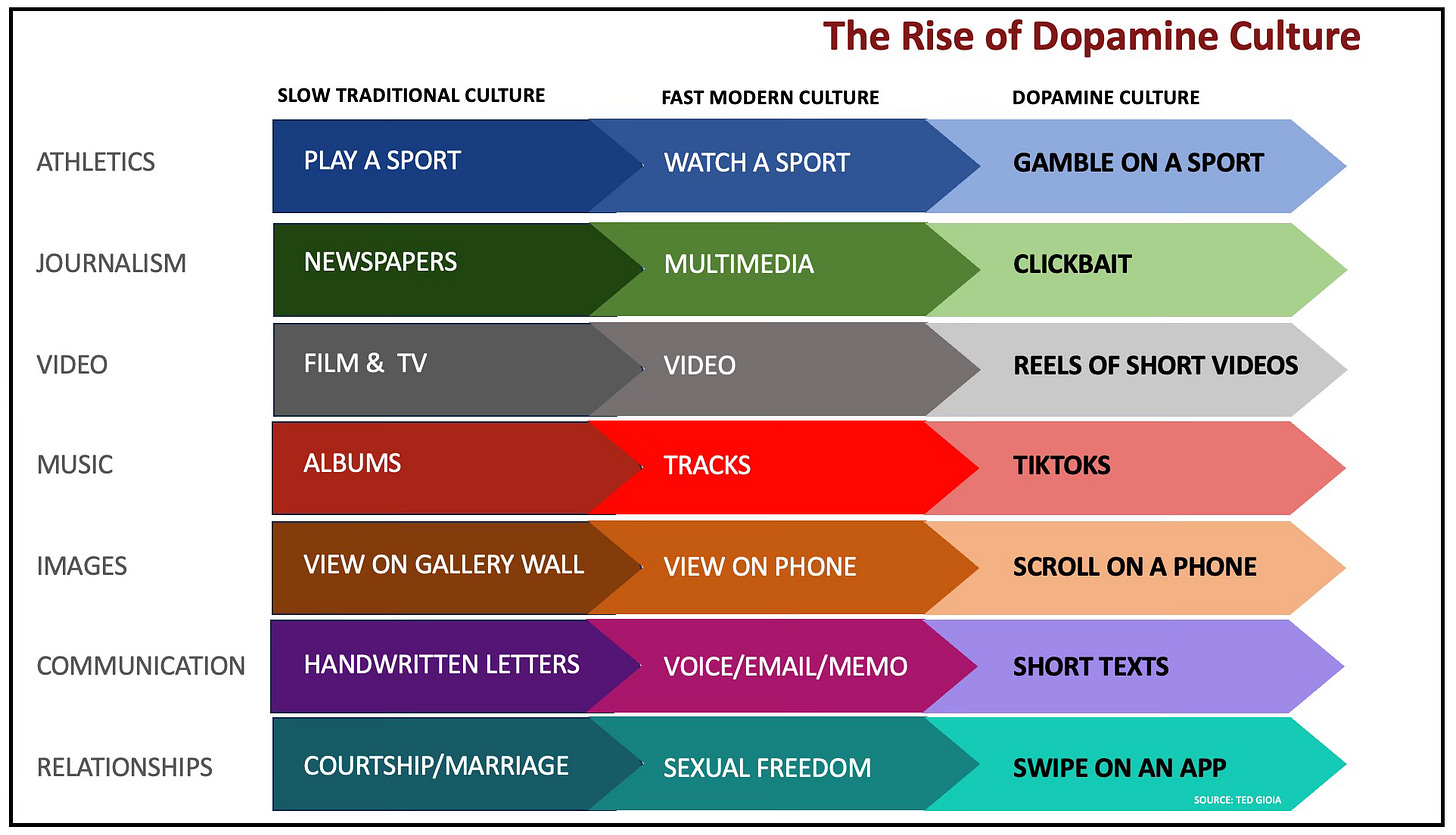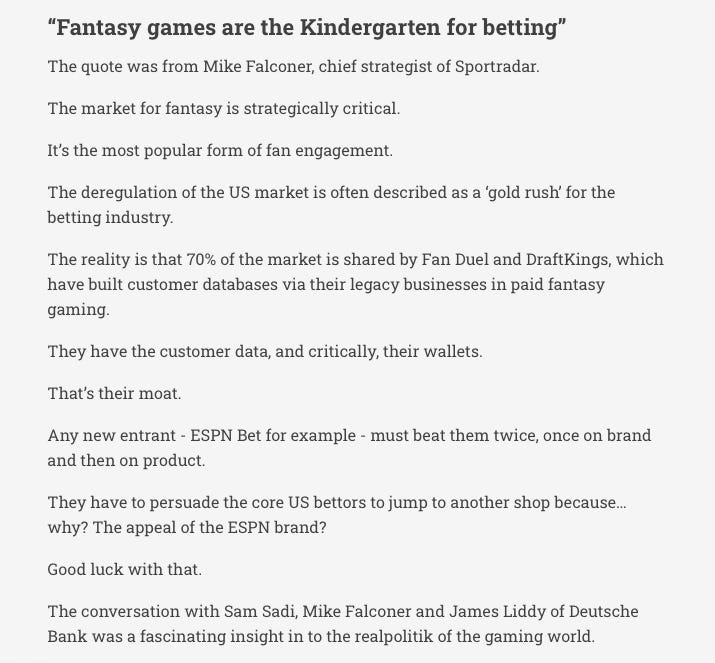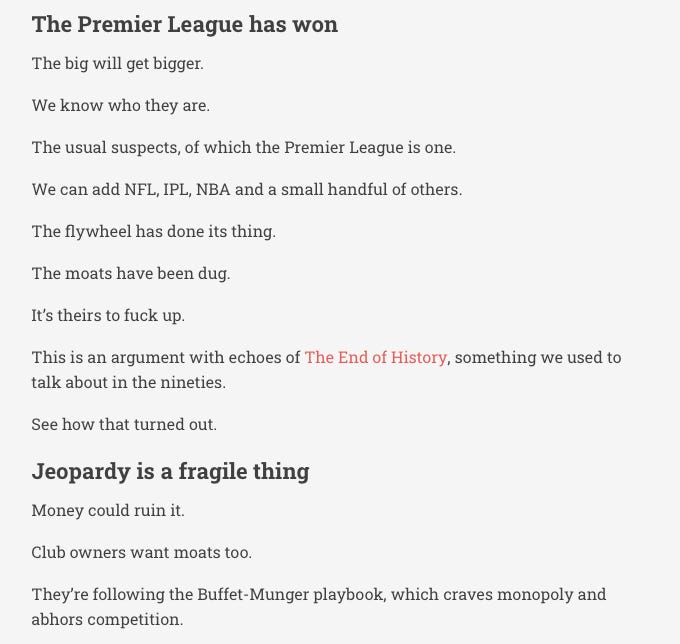Gen Z's Shein Problem; Kahneman RIP; What you'll be quoting in 2024; Shirt values; Are United post-winning; Joe Pompliano v AI; The Bundle Rebundled; Dopamine culture; Circularity explained
Overthinking the sports business, for money
UP Exclusive - Get 10% off SportAccord tickets
This newsletter is sponsored by SportAccord World Sport and Business Summit, which is taking place in the UK this year at Birmingham’s ICC.
From 7 to 11 April global leaders and senior execs from over 125 International Sport Federations, the IOC, rights holders, professional leagues, host cities and major event organising committees from all continents will be meeting to make decisions that will shape the future of sport.
With a thought-provoking conference programme, busy exhibition and a host of networking events, evening receptions and cultural activities SportAccord is your chance to organise a year’s worth of meetings in a week with executives from across the global sport ecosystem.
With senior execs from FIBA to FORTNITE, from FIA to Kansas City Chiefs don’t miss the chance to rub shoulders with the worlds sports and business leaders.
SportAccord are offering Unofficial Partner community a discount of 10%, just click on the link to get your UP 10% discount
If you’re going, come say hello. More information here
We’re all in Kahneman’s debt
Daniel Kahneman died this week.
I met him briefly twenty odd years ago, when he was on a book tour for Thinking Fast And Slow. He was smart and nice, a good combination.
If you work in any field of human behaviour, you’ll have copied his ideas whether you knew it or not.
If you’ve read a popular social science ‘ideas’ book, or watched a TED Talk or even followed a self-aggrandising Twitter thread, there’s a decent chance it was stolen from Kahneman: Behavioural science, framing, psychological biases, priming, heuristics, decision making, noisy data, system 1 and 2…all of it.
He was a psychologist who won the Nobel Prize for Economics, by challenging the established primacy of Utility Theory, that assume we make decisions based purely on rational self interest.
“I did not know enough about utility theory to be blinded by respect for it,” he wrote. The problem, as he saw it, was that the theory did not square with the understanding of humans acquired through his experience, personal and professional, in war–time France, newly–founded Israel or 1960s America.
See also: ‘Clearly AI is going to win. How people are going to adjust is a fascinating problem’.
Don’t take our word for it, hear Rory Sutherland on Kahneman in one of our earliest podcasts.
The real problem with AI is that soon we’ll all sound like Joe Pompliano
We edit UP podcasts using a clever bit of software called Descript.
It takes the audio files and turns them in to transcripts from where you can edit and generate audio and video clips from source.
It saves a lot of time.
But there’s a problem with the tone of voice.
It all sounds…how do I put this..a bit Joe Pompliano.
Blandly, puppy-ishly enthusiastic. Uncritically obsessed with wealth and those who have it; seeking the highest possible dollar number in any story as a proxy for relevance and interest.
This is Descript/Pompliano’s suggestions for a yet to be published episode of The Bundle.
The AI challenge summarised: It’s quick, but it’s boring, and obvious.
The essay you’ll be quoting throughout 2024
Ted Gioia’s piece is outstanding.
I liked these two graphics in particular, which will appear in many agency powerpoint decks this year.
Sport has spent a generation seeking to view itself as entertainment.
Which is a bit like training to be a coal miner.

Build: Betting as part of the Dopamine Culture, shown above.
This quote springs to mind, from our Convergence Brainstorm at the Orbit Tower, Olympic Park last September.
Selling England shirts to Gen Z
This next chart is fascinating (via Rex Woodbury’s brilliant 10 Charts That Capture How The World Is Changing).
It breaks down how we buy clothes now and over the next decade (it’s US focused, so we’re projecting on to it a bit).
Secondhand - rebranded to Resale - is the fastest growing category of apparel. The next biggest is Off-Price (TK Maxx).
Now run £120 England shirts through this graph.
The same analysis gets to another conundrum for sports retail ambitions: where Gen Z’s oft-quoted love for the environment bangs headlong in to its addiction to fast fashion.
People talk a good game on buying sustainably and then go and buy cheap, horribly sourced stuff.
Shein has grown 15-20x since entering the US market in 2018, overtaking Amazon as the number one shopping app on IOS and Android.
It builds on a point made by Robert Barrington in last week’s Saudi Question podcast about the obvious conflict in the mission statements of FIFA and many other major sports governing bodies that claim to save the world while making a fortune.
Growing the game one massive sports mega event at a time.
More teams, more fans, more journeys, larger carbon footprint
Retail is just a part of sport’s sustainability challenge.
But it illustrates the complexity of the challenge.
Particularly if circularity is going to be a part of the solution.
The circular economy is a model of production and consumption, which involves sharing, leasing, reusing, repairing, refurbishing and recycling existing materials and products as long as possible. In this way, the life cycle of products is extended
Again, run the football shirt economy through this model.
The circle breaks pretty quickly.
Governing body/club trumpets sustainability goals.
Sells merchandise rights at a high price to Nike/Adidas/Puma
Big Kit creates frequent new iterations priced to get the license fee back ASAP.
Repeat every season.
New kit to landfill.
It’s a game we can’t afford.
The rest is greenwashing.
How valuable is winning to the Man Utd shirt?
Turnstile put dollar values to Man Utd, Dallas Cowboys and Chennai Super Kings.
Hear this week’s podcast with Turnstile’s Kylie Bishop, and Mike Fordham, formerly of ECB, IMG and Rajasthan Royals CEO.
Some questions arising.
Does success matter? Why is Man Utd’s value so high when they’ve not won much for a decade.
Put another way, are some shirts loser-proof?
How much of United’s shirt value based on United’s backstory versus the Premier League media footprint?
And what do we know for sure about how to build value in newer team properties, in the WSL, Saudi Premier League, LIV Golf or The Hundred for example.
You can download Turnstile’s InTel report here.




